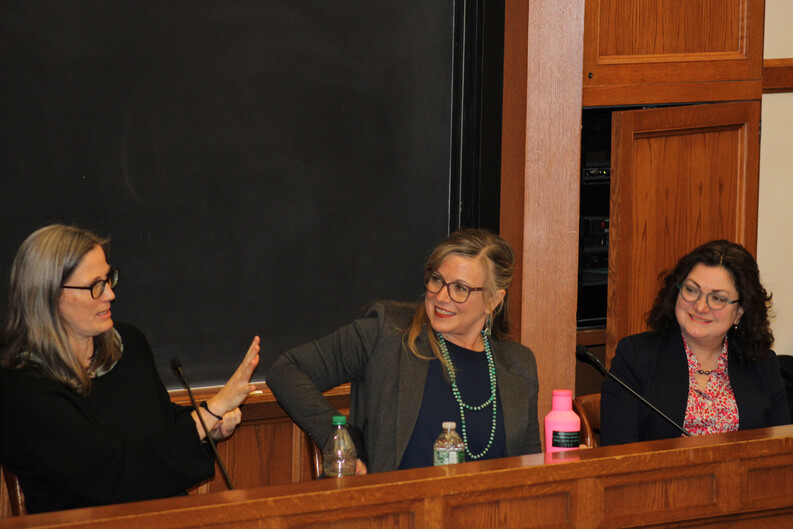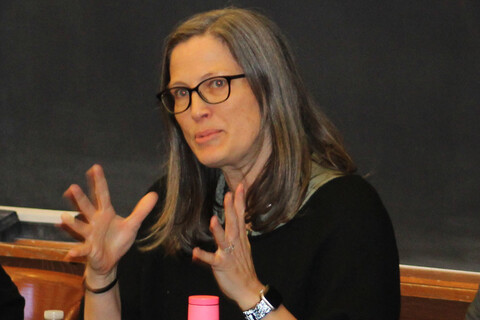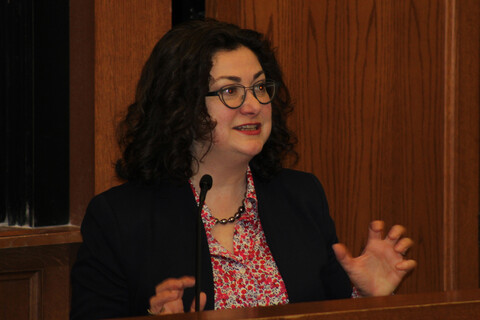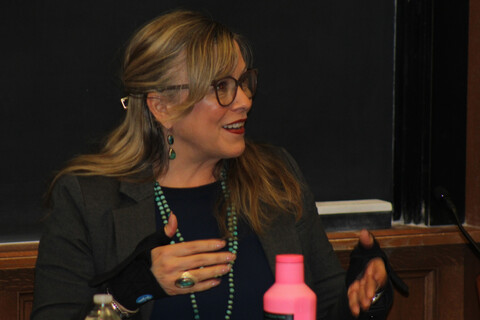Book Talk Revisits Health Law Judgments from a Feminist Perspective

On March 11, the Solomon Center for Health Law and Policy hosted a discussion on the recent book Feminist Judgments: Health Law Rewritten, part of a book series in which scholars revisit and rewrite canonical judicial opinions from a feminist perspective.

Professor Lindsay F. Wiley, one of the book’s co-editors (together with Seema Mohapatra, the MD Anderson Foundation Endowed Professor in Health Law at SMU Dedman School of Law) was among the speakers. She joined two contributing case authors, Professors Kelly Gillespie and Danielle Pelfrey Duryea, in conversation. Solomon Center Student Fellow Mijal Epelman ’25 moderated the discussion.
Wiley, Professor of Law and Faculty Director of the Health Law and Policy Program at UCLA School of Law, began by highlighting the importance of interactions among the social construction of law, gender, and health justice. Wiley noted that since scholarly discourse on health law largely revolves around legislative reforms, this book is an opportunity to reflect on the important but oft-overlooked role judges play in health law. She noted that health law has many examples of canonical cases that dispute women’s voices, perspectives, and expertise. That makes it especially critical to examine health law cases from a feminist perspective, she said. The idea of seeing and believing women drove the creation of the book, Willey explained.

Duryea, Director of the Compliance Policy Clinic and a Lecturer/Clinical Instructor at Boston University School of Law, described the case that she and Gillespie wrote about in the book, Schloendorff v. Society of New York Hospital. That case, decided in 1914 by then-Judge Benjamin Cardozo, laid the foundation for the modern doctrine of informed consent. Even though plaintiff Mary E. Schloendorff explicitly refused surgery, a physician performed a hysterectomy when Schloendorff was under anesthesia, leaving her with injuries and post-operative effects of gangrene. Cardozo, however, ruled that the hospital was not liable for the harm caused to the plaintiff.
Duryea noted that Cardozo’s opinion ignored evidence in Schloendorff’s favor and effectively disregarded the voices of Schloendorff and the nurses who treated her. Duryea explained that this disregard and lack of empathy to women — both as actors in the legal system and as professionals — is inconsistent Cardozo’s image as a judge who developed the law to achieve socially desirable goals.

The last speaker was Gillespie, who wrote a dissenting opinion for Schloendorff rather than a rewrite of Cardozo’s opinion. Gillespie, Professor of Law at the Center for Health Law Studies at Saint Louis University School of Law, said that she wanted to expose and draw attention to the original opinion’s flaws. She described her experience of reading the trial transcript, which could only be found in one archive.
“Reading the transcript was horrifying in many ways,” Gillespie said.
Gillespie pointed to inaccuracies and omissions in the opinion, including the fact that Schloendorff informed at least four people about her refusal to undergo surgery. As someone with a nursing background, Gillespie said she was bothered by how the opinion described nurses’ roles, responsibilities, and training.
This event was co-sponsored by the Yale Health Law and Policy Society (YHeLPS) and Yale Law Women+ (YLW+).


